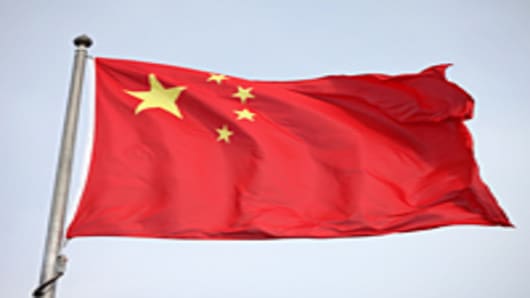Over the summer, money managers turned markedly bullish on China.
Only a handful of hedge fund managers have put money to work shorting China.
It's tough to short China. Foreigners are barred from directly investing in Chinese companies. Shorting Chinese stocks, even for Chinese natives, is tricky. China only began allowing short selling this year. So China bears have to get creative to short markets there.
Most notable among the China shorts is Kynikos Associates founder Jim Chanos and Eclectica Asset Management founder Hugh Hendry. Chanos has been warning about excessive credit in China and the potential for a disruption in the housing market to spread to China's broader economy.
He has reportedly been focusing on taking short positions in construction and industrial companies that do a lot of business in China.
So what's Hendry doing? Sam Jones at the Financial Times got the scoop:
Mr Hendry has constructed a portfolio that targets Japanese corporate credits as some of the instruments likely to be worst affected. The fund has taken short positions through credit default swaps, whose prices reflect the solvency position of issuers, against 20-30 single-name corporate bonds, the majority of which are Japanese.
“Being short China is difficult,” Mr Hendry said. “I could go to China and short equities, but that’s too volatile and I have unlimited loss.
I could short commodities like copper, but that would be unlimited loss too, so I don’t like it. I could look for ways to be short Australia or Brazil, but there’s not enough optionality there. Japan is the most exposed economy industrially.”
“If there is the slightest sneeze in south-east Asia it will give me so much more bang for my buck,” he said.
Mr Hendry has purchased cheap credit protection on companies such as Nippon Steel or JFE Holdings for as little as 50 basis points annually, expecting that spreads will blow out following an export-led slowdown. Japanese companies were highly exposed to China but such risks were currently underpriced, he said. The cost of CDS protection on US Steel, for example, is about 500bp annually.
Mr Hendry expects the trades to pay off within the next 18 months. “We want to be in early and out early,” he said.
You have to wonder, however, if Hendry's strategy of shorting Japan as a proxy for shorting China isn't in danger of getting crushed by the Bank of Japan's new "we'll buy everything" policy of quantitative easing.
Questions? Comments? Email us atNetNet@cnbc.com
Follow John on Twitter @ twitter.com/Carney
Follow NetNet on Twitter @ twitter.com/CNBCnetnet
Facebook us @ www.facebook.com/NetNetCNBC



